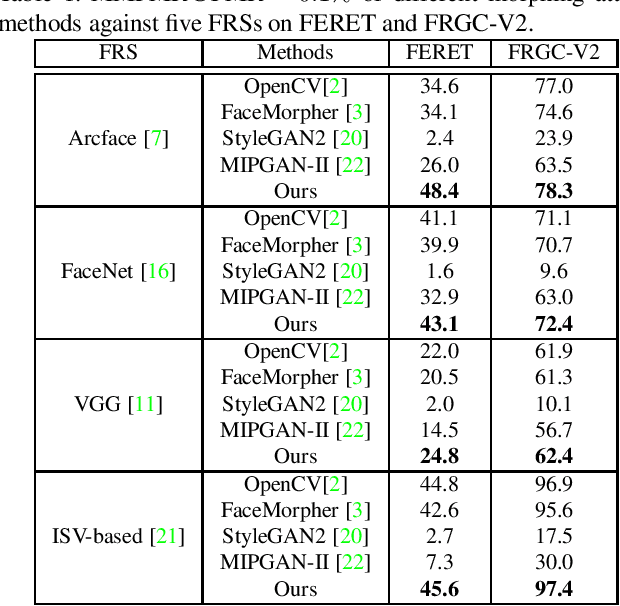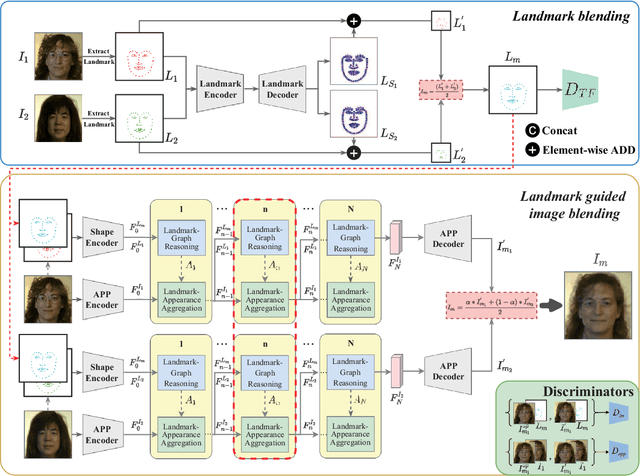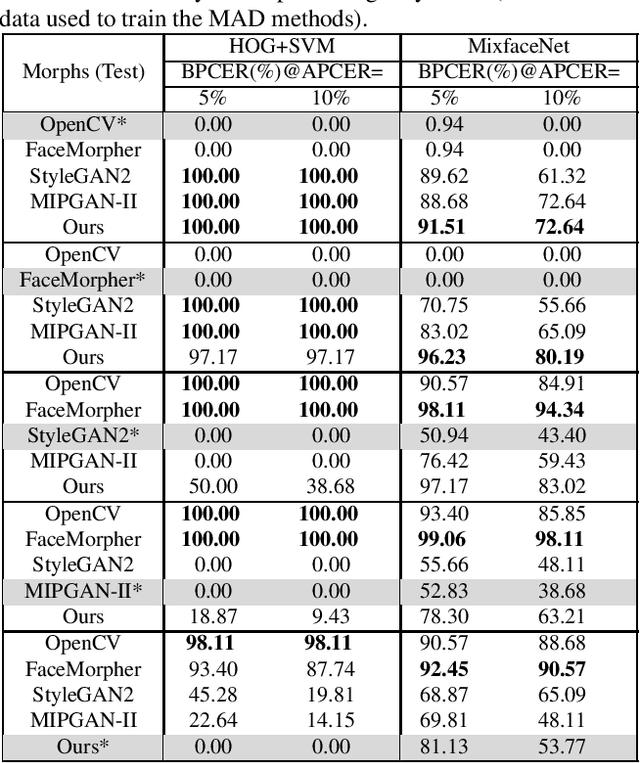Optimal-Landmark-Guided Image Blending for Face Morphing Attacks
Paper and Code
Jan 30, 2024



In this paper, we propose a novel approach for conducting face morphing attacks, which utilizes optimal-landmark-guided image blending. Current face morphing attacks can be categorized into landmark-based and generation-based approaches. Landmark-based methods use geometric transformations to warp facial regions according to averaged landmarks but often produce morphed images with poor visual quality. Generation-based methods, which employ generation models to blend multiple face images, can achieve better visual quality but are often unsuccessful in generating morphed images that can effectively evade state-of-the-art face recognition systems~(FRSs). Our proposed method overcomes the limitations of previous approaches by optimizing the morphing landmarks and using Graph Convolutional Networks (GCNs) to combine landmark and appearance features. We model facial landmarks as nodes in a bipartite graph that is fully connected and utilize GCNs to simulate their spatial and structural relationships. The aim is to capture variations in facial shape and enable accurate manipulation of facial appearance features during the warping process, resulting in morphed facial images that are highly realistic and visually faithful. Experiments on two public datasets prove that our method inherits the advantages of previous landmark-based and generation-based methods and generates morphed images with higher quality, posing a more significant threat to state-of-the-art FRSs.
 Add to Chrome
Add to Chrome Add to Firefox
Add to Firefox Add to Edge
Add to Edge